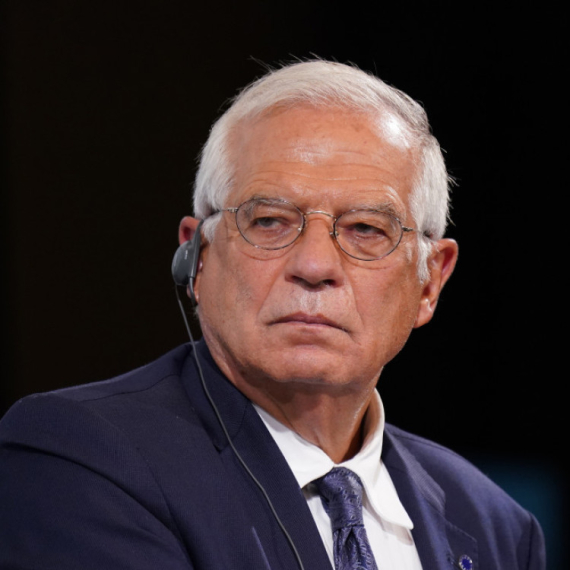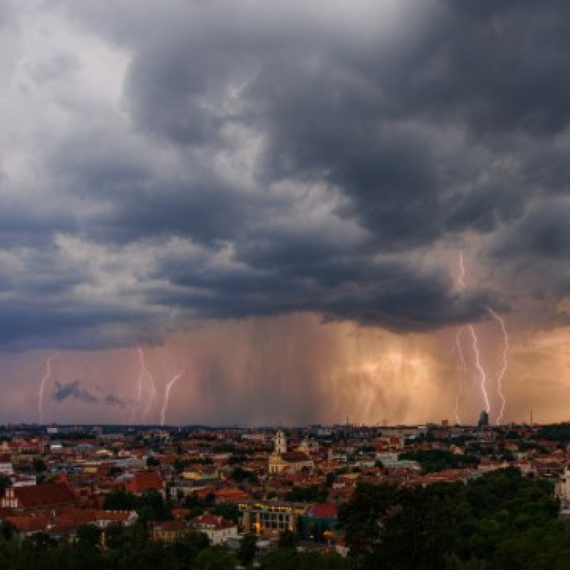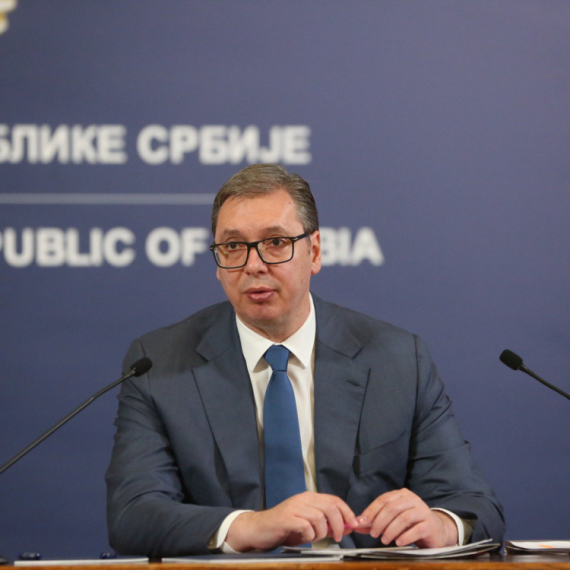EC calls for unfreezing of interim agreement
The European Commission has called on the EU to implement the Interim Trade Agreement with Serbia in Brussels today.
Wednesday, 14.10.2009.
10:11

The European Commission has called on the EU to implement the Interim Trade Agreement with Serbia in Brussels today. In its annual progress report on the Western Balkan states, the EC states that the authorities in Belgrade have proven their commitment to EU integration, are implementing the trade agreement, and are consistently cooperating with the Hague Tribunal. EC calls for unfreezing of interim agreement European Enlargement Commissioner Olli Rehn stressed that “Serbia has done a very good and serious job concerning cooperation with the Hague Tribunal and other commitments it had linked to war crimes”. Asked whether he was hopeful that the Netherlands would agree to implementation of the agreement, Rehn joked that “a person working as an enlargement commissioner has to be a professional optimist.” The commissioner added that the Swedish EU presidency would decide ultimately, and that the proposal would be discussed at the next EU Council of Ministers. According to an EC statement, “Serbia has shown the will to move closer to the EU by implementing the provisions of the interim agreement with the EU and conducting significant reforms.” “In light of Serbia’s consistent cooperation with the Hague Tribunal, the EC’s opinion is that EU must activate the interim agreement now ,” it stated. The statement added that “Serbia has yet to build a more constructive position towards issues concerning Kosovo”. Rehn said that visa liberalization would also be offered to Kosovo if the necessary conditions were met and that the trade agreement would also be signed. At the same time, an expert mission is in Belgrade to determine whether all the conditions for visa liberalization have been met. "Balkan projects must continue" The view of the European Court of Auditors, which is the high court for financial control of European institutions, is that the commission should not shelve projects launched in the Western Balkans, especially those that lead to more secure borders and effective judicial systems. “There are two key questions: first of all, borders must be secure, because, inside the former Yugoslavia, there are about 5,000 kilometers of border between seven countries. Obviously, it is important for the borders to be secure to be able to combat drug and human trafficking most effectively. “The second thing is the courts—application of the law, for criminals arrested by police to truly be brought to justice. That is why having strong court systems is one of the key priorities,” said Maarten B. Engwirda from the European Court of Auditors.
EC calls for unfreezing of interim agreement
European Enlargement Commissioner Olli Rehn stressed that “Serbia has done a very good and serious job concerning cooperation with the Hague Tribunal and other commitments it had linked to war crimes”.Asked whether he was hopeful that the Netherlands would agree to implementation of the agreement, Rehn joked that “a person working as an enlargement commissioner has to be a professional optimist.”
The commissioner added that the Swedish EU presidency would decide ultimately, and that the proposal would be discussed at the next EU Council of Ministers.
According to an EC statement, “Serbia has shown the will to move closer to the EU by implementing the provisions of the interim agreement with the EU and conducting significant reforms.”
“In light of Serbia’s consistent cooperation with the Hague Tribunal, the EC’s opinion is that EU must activate the interim agreement now ,” it stated.
The statement added that “Serbia has yet to build a more constructive position towards issues concerning Kosovo”.
Rehn said that visa liberalization would also be offered to Kosovo if the necessary conditions were met and that the trade agreement would also be signed.
At the same time, an expert mission is in Belgrade to determine whether all the conditions for visa liberalization have been met.
"Balkan projects must continue"
The view of the European Court of Auditors, which is the high court for financial control of European institutions, is that the commission should not shelve projects launched in the Western Balkans, especially those that lead to more secure borders and effective judicial systems.“There are two key questions: first of all, borders must be secure, because, inside the former Yugoslavia, there are about 5,000 kilometers of border between seven countries. Obviously, it is important for the borders to be secure to be able to combat drug and human trafficking most effectively.
“The second thing is the courts—application of the law, for criminals arrested by police to truly be brought to justice. That is why having strong court systems is one of the key priorities,” said Maarten B. Engwirda from the European Court of Auditors.


























Komentari 2
Pogledaj komentare